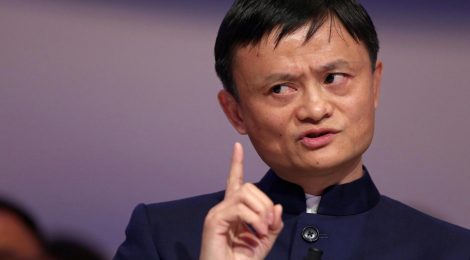
Alibaba and the fight against counterfeiting in China
Alibaba Group Holding Ltd., the Chinese giant e-commerce company, was allowed to join the International Anti-Counterfeiting Coalition (IACC) in April this year. The IACC, which is a non-profit global organization fighting counterfeit products and piracy, created a new membership category in order to let Alibaba in the coalition. Then, one week ago, the group unexpectedly suspended the Chinese Internet giant’s membership, amid questions regarding conflicts of interest involving the IACC’s president and complaints from some members.
Alibaba is trying to shed its image as a haven for cheap brand knockoffs, but its inclusion in the anti-counterfeiting group has fuelled an escalating controversy over whether Alibaba is doing enough to fight the selling of counterfeit merchandise on its shopping sites. In reaction, Alibaba co-founder Jack Ma cancelled his appearance to the annual conference of the IACC this week, and was replaced by the company’s president Michael Evans.
IACC members include prominent brands such as Apple Inc., Nike, Calvin Klein and Procter & Gamble, which Alibaba is courting to help boost sales of global brands to Chinese shoppers. After the organisation admitted the Chinese e-commerce giant, various high-profile brands, including the then-board member Tiffany & Co., quit the group in protest.
Alibaba’s China marketplaces are among the largest in the world, handling €432 billion in merchandise volume in the financial year ended March 31, more than Amazon and eBay combined, analysts say. In a speech addressing the IACC in Orlando on Thursday, Mr Evans said that Alibaba’s future depends on its success in fighting counterfeiters. He argued that his company is “100% committed to fighting this battle,” and emphasised the need to work with product makers to tackle the problem.
The South China Morning Post, owned by Alibaba itself, reported what Xu Chunming, deputy head of Shanghai University’s Intellectual Property Institute, saying: “Generally speaking, Chinese citizens and companies have yet to improve their awareness in respecting and protecting intellectual property… and technically, there’s a difficulty for Alibaba in stopping the sale of fake goods as it serves as a platform for sellers instead of as a manufacturer or seller.”
In the meantime, the new membership classification which allowed the entrance of Alibaba has been put on hold until a decision will be taken after “further discussion and consideration” among the IACC board. Apart from suspicions about the Chinese company’s efficiency and willingness in fighting counterfeiting, light has been shed about a conflict of interests involving the IACC president Bob Barchiesi. Bloomberg reported that “Barchiesi held Alibaba stock, had close ties to a company executive, and had used family members to help run the coalition.”
“My investments are completely independent from my work in anti-counterfeiting,” he replied. “The stock represents a small percentage of my investment portfolio. I also have shares in companies that happen to be a member of the IACC.”
Alibaba said it will continue to implement IACC MarketSafe Expansion Programme, whether it is a member or not, and will expedite efforts to remove products identified as fake.




